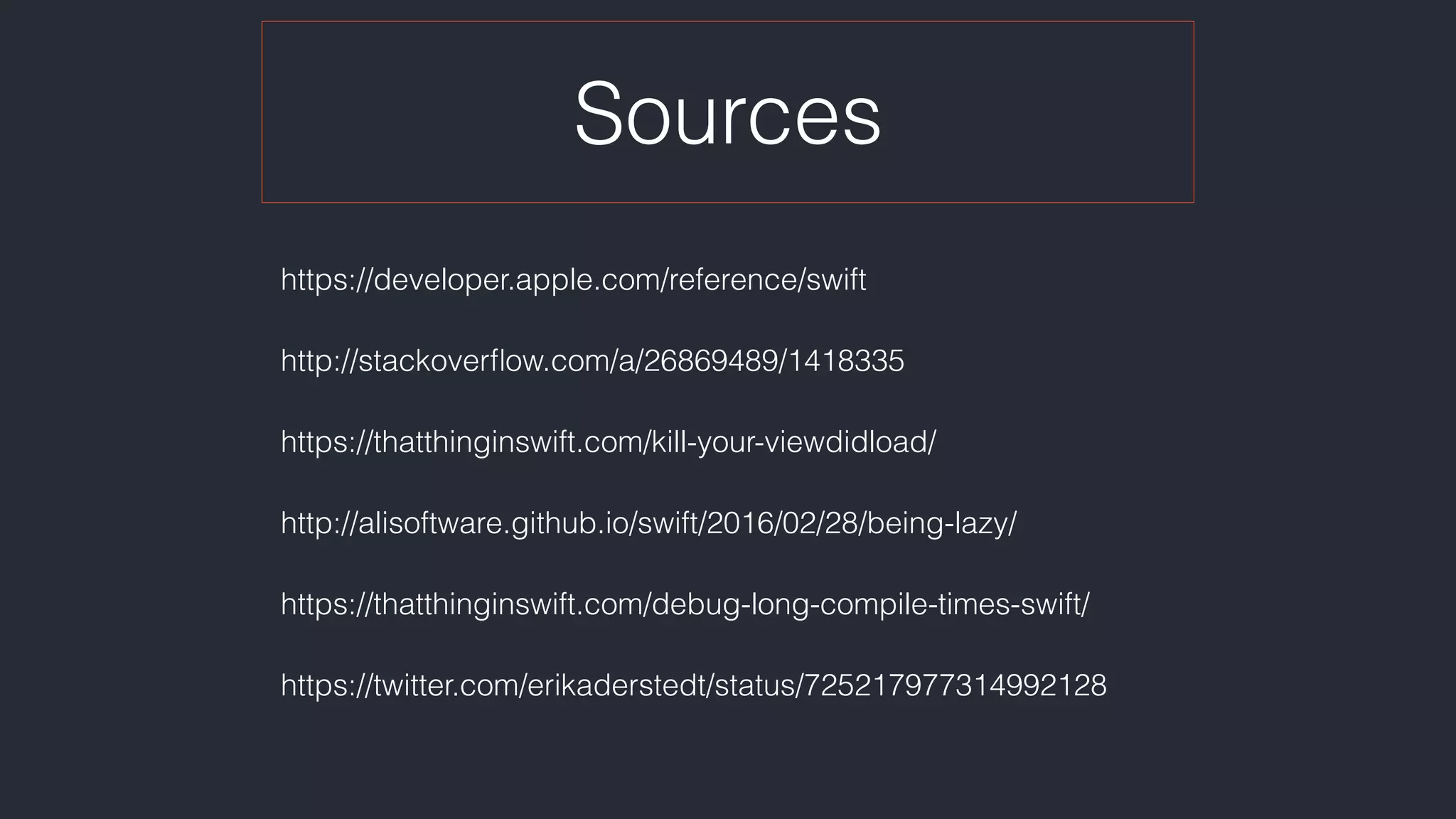This document provides practical tips and tricks for maintaining a Swift codebase, focusing on organization, access control, early exits, and collection-type APIs. It emphasizes the importance of documentation, striving for smallness in code, and utilizes examples of property initialization and lazy loading for efficiency. Additional recommendations include optimizing build times and using tools like swiftlint for documentation and code management.

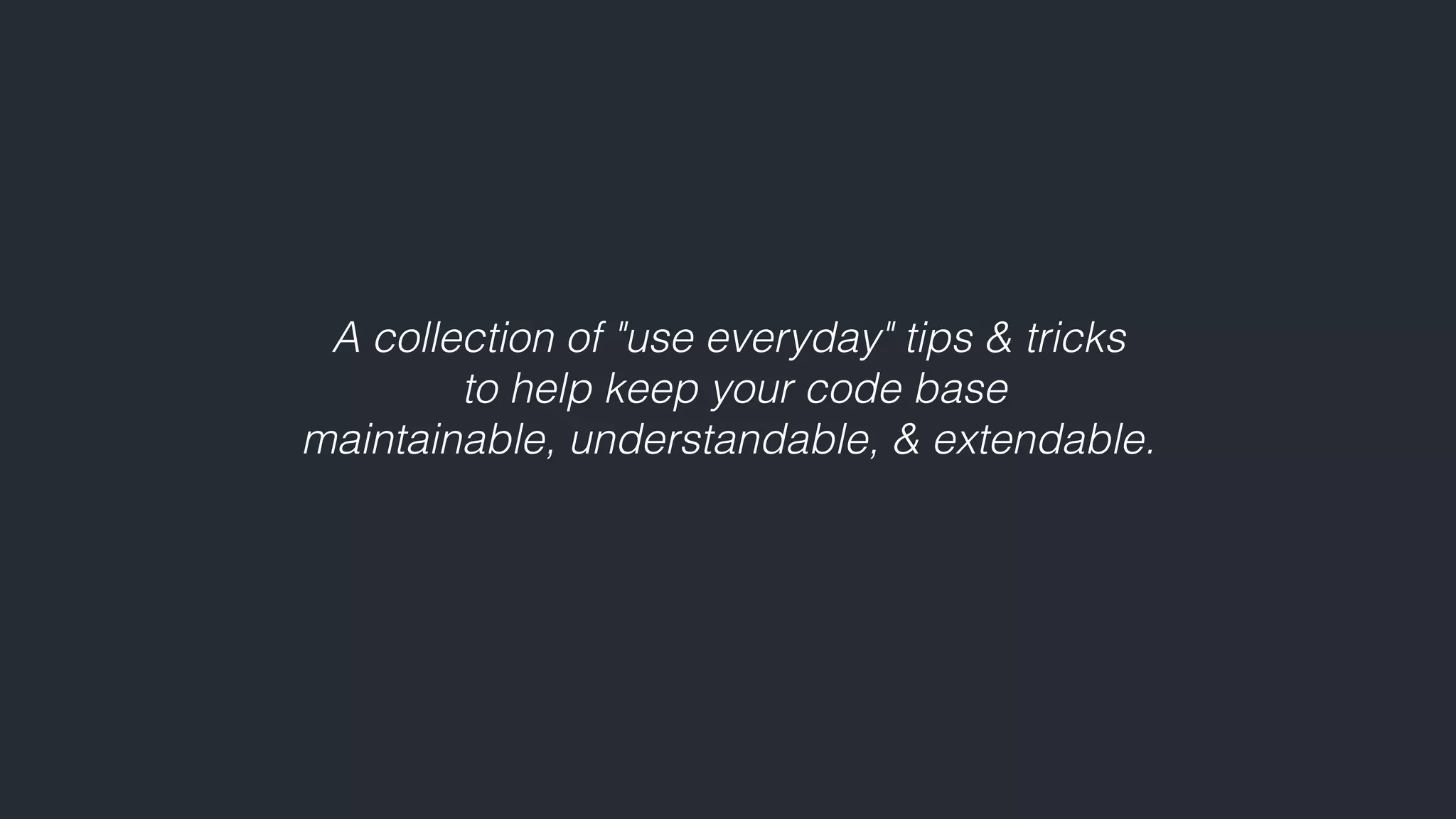
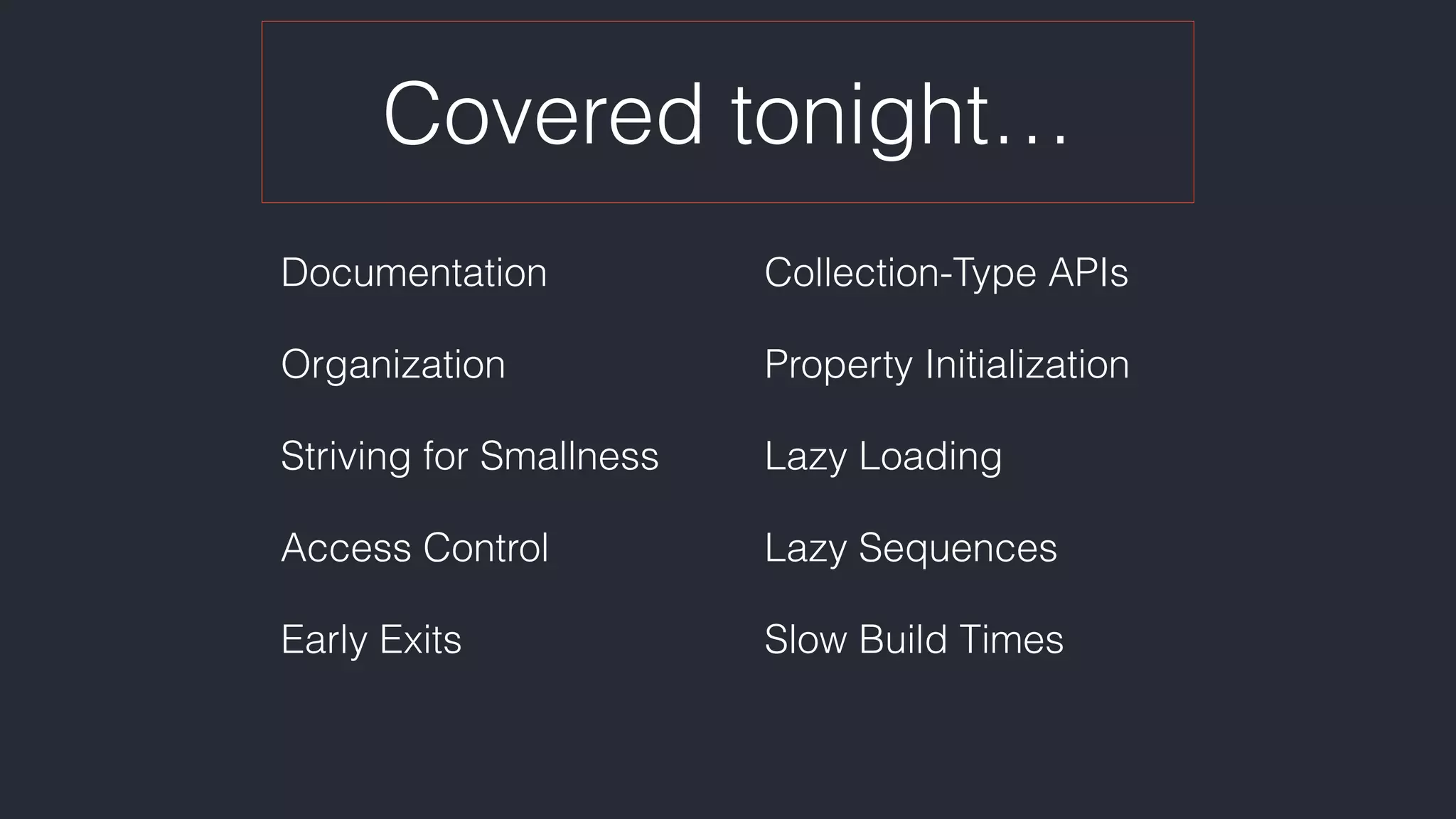
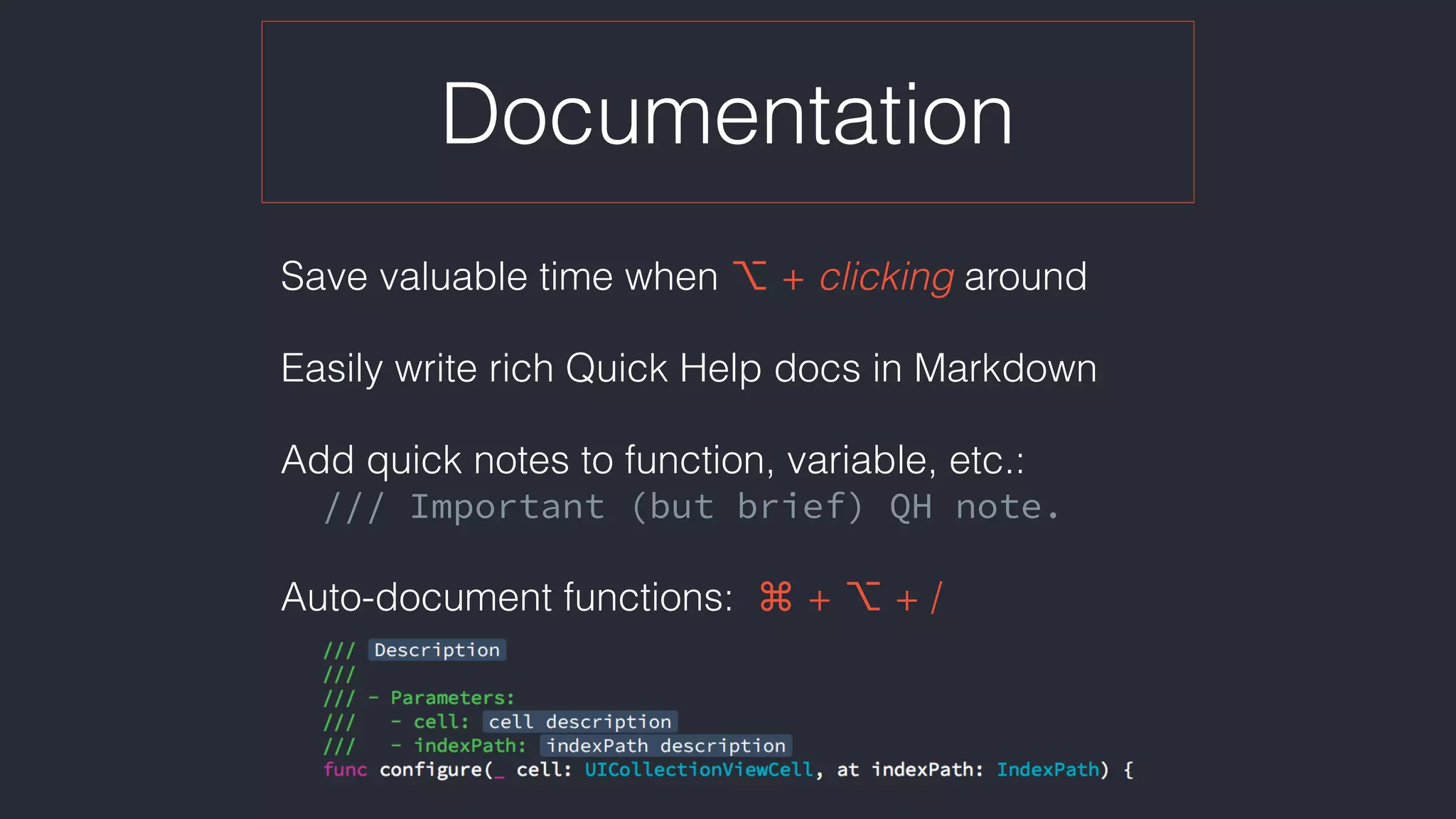
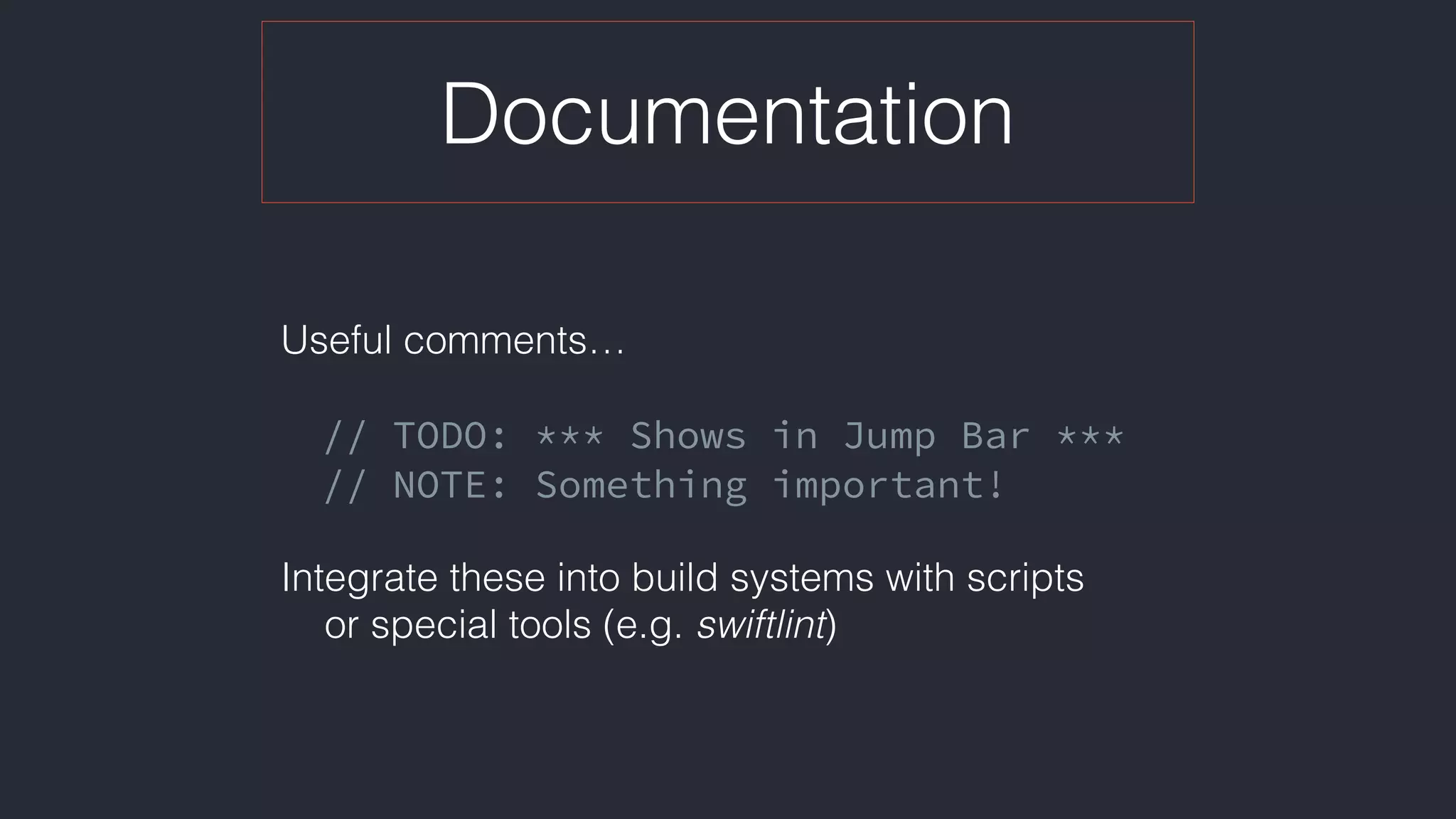
![Documentation
// Forces Xcode to flag a warning at compile time
// Source: http://stackoverflow.com/a/26869489/1418335
// Disclaimer: Not tested; I use swiftlint :)
if [ "${CONFIGURATION}" = "Debug" ]; then
TAGS=“TODO:|FIXME:"
echo "searching ${SRCROOT} for ${TAGS}"
find "${SRCROOT}" ( -name "*.swift" ) -print0 | xargs -0 egrep
--with-filename
--line-number
--only-matching "($TAGS).*$"
| perl -p -e "s/($TAGS)/ warning: $1/"
fi](https://image.slidesharecdn.com/pragmaticswift-170126162940/75/Pragmatic-Swift-6-2048.jpg)

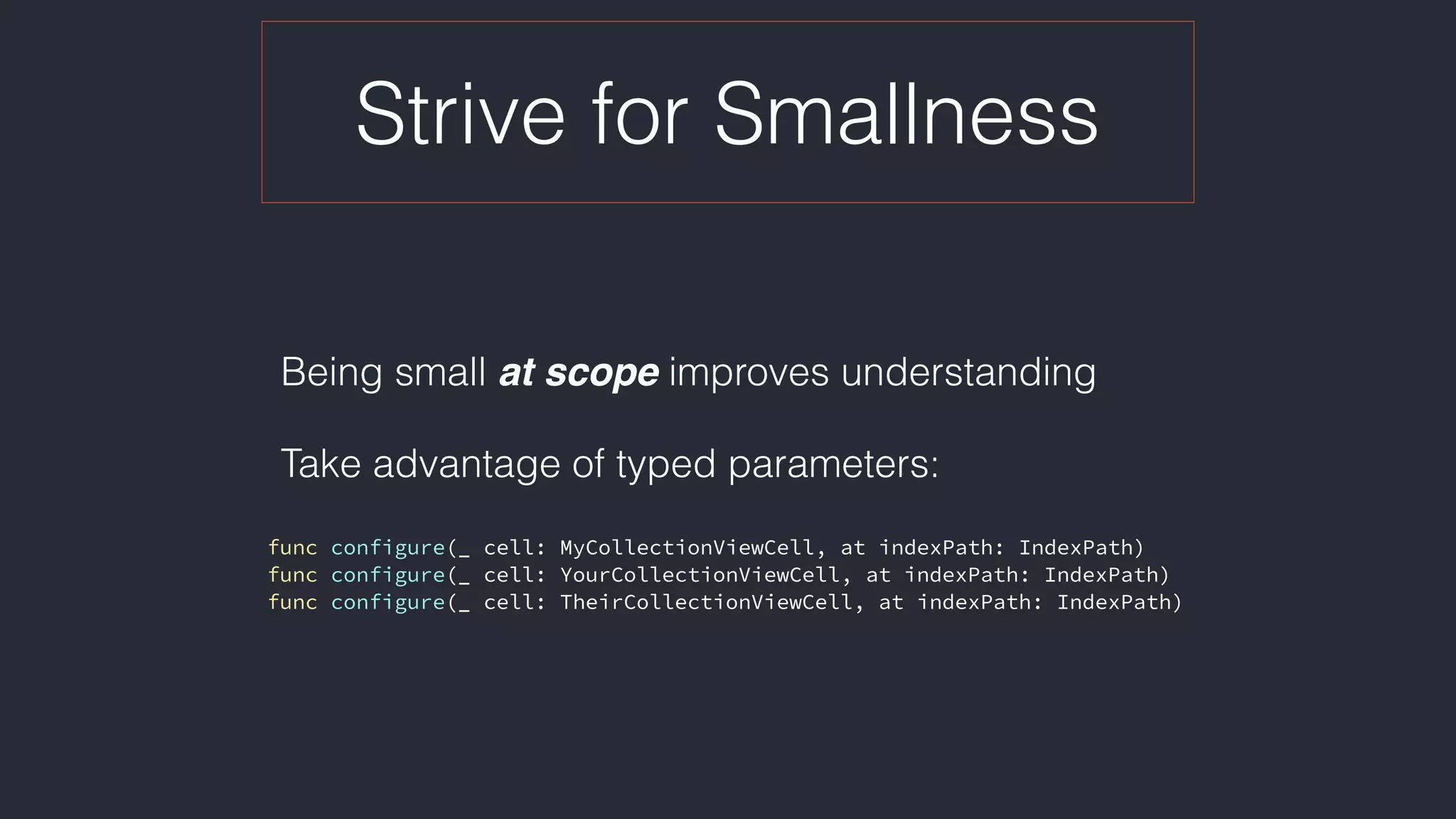
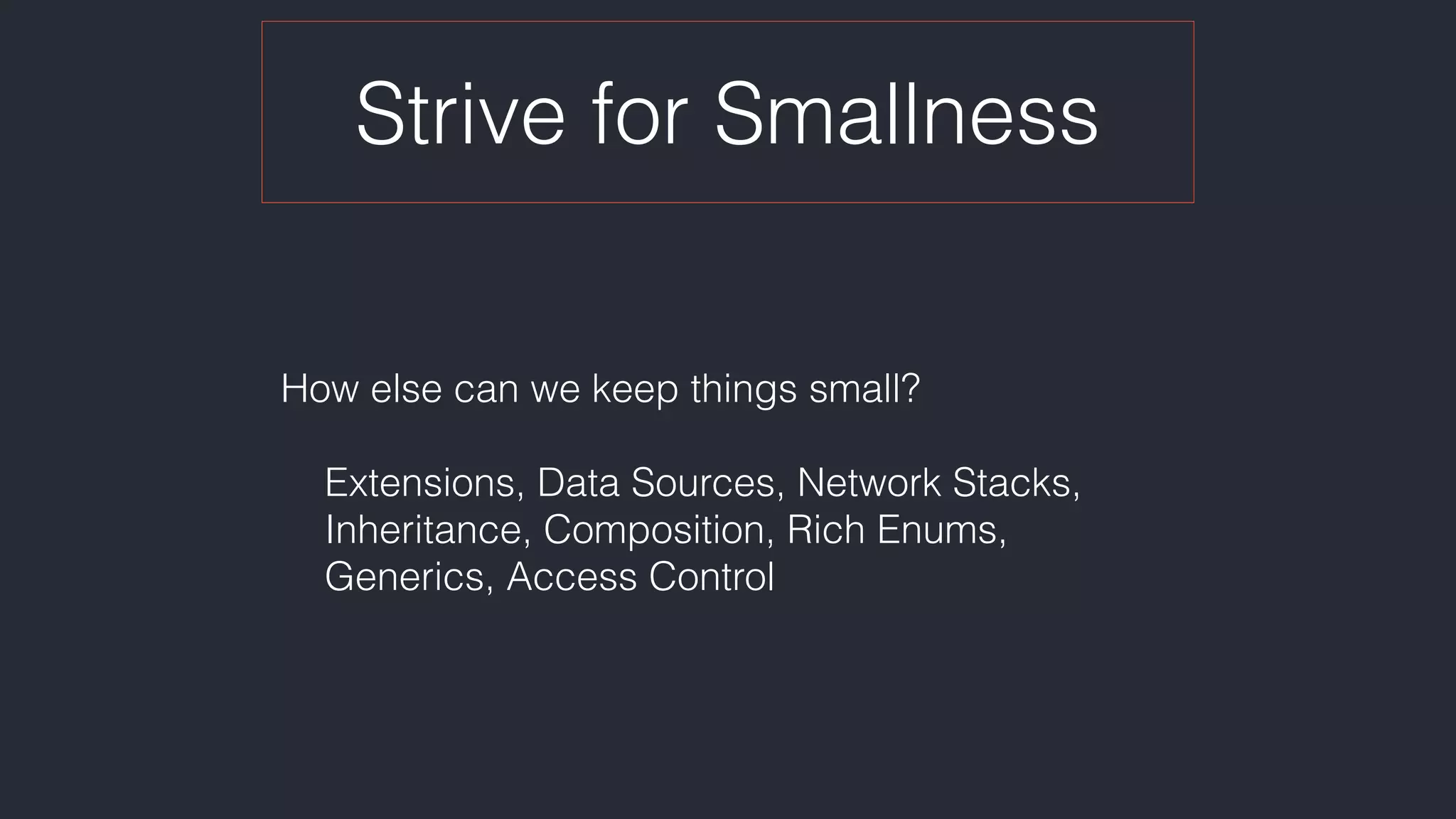
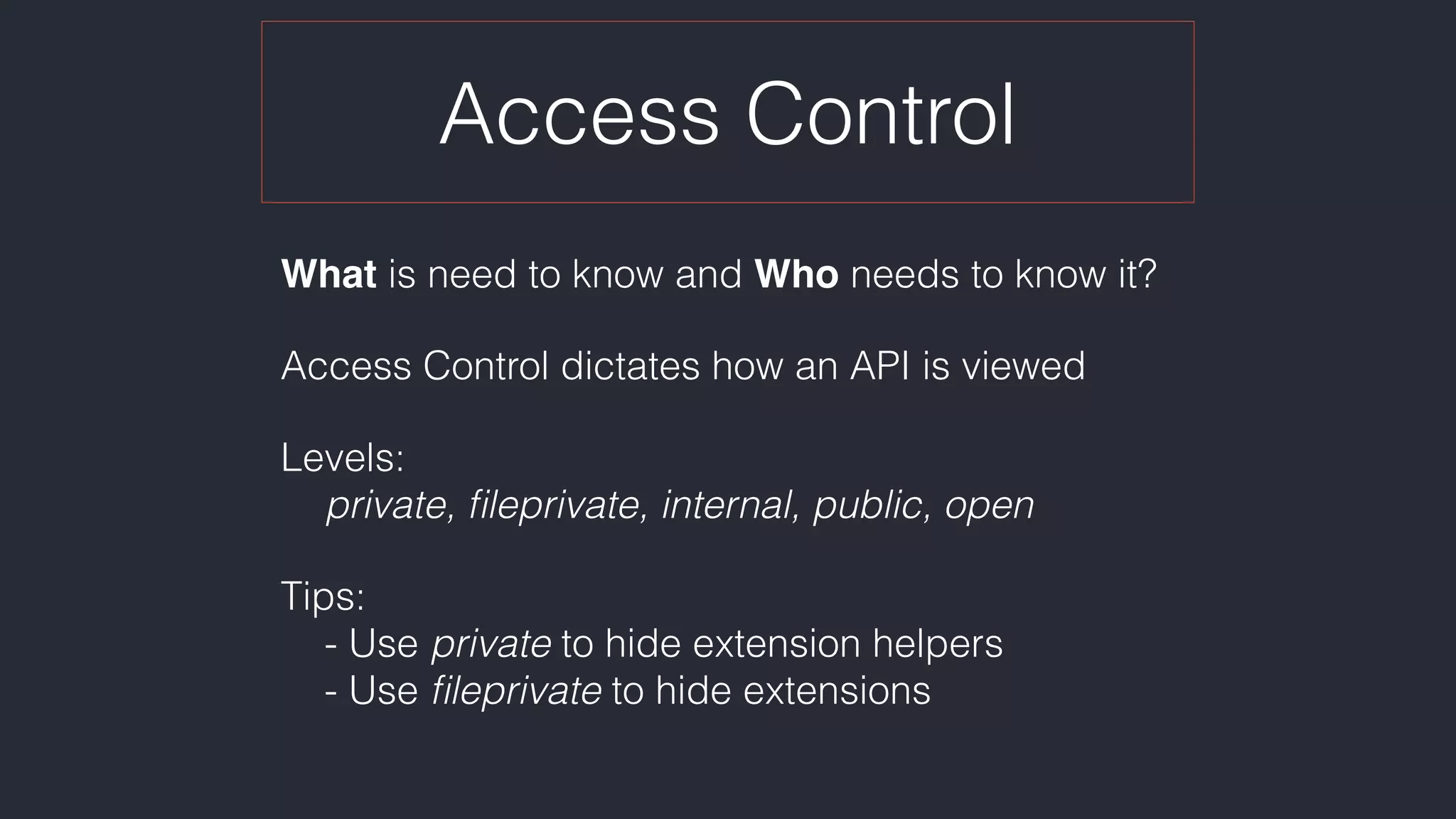
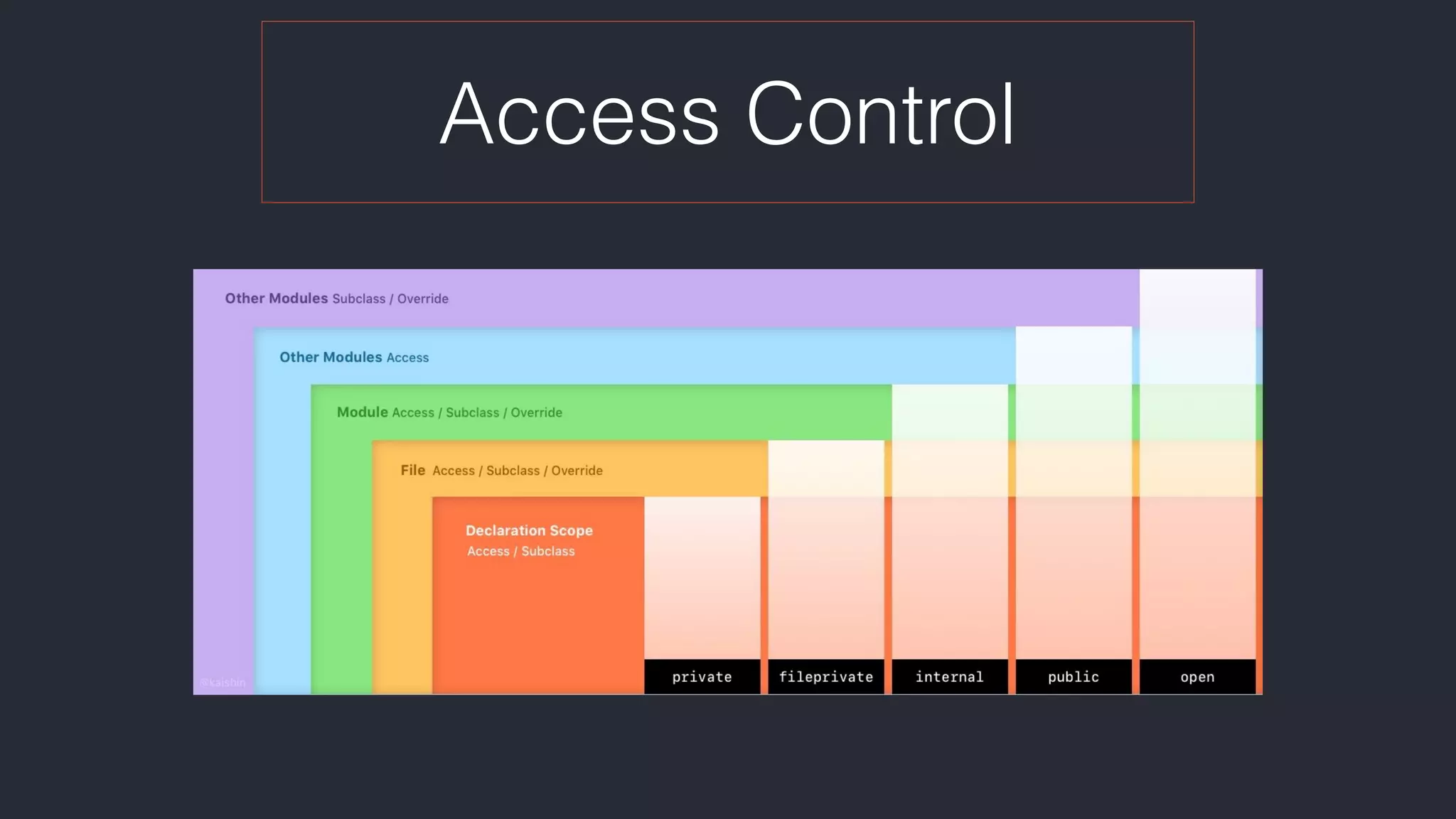
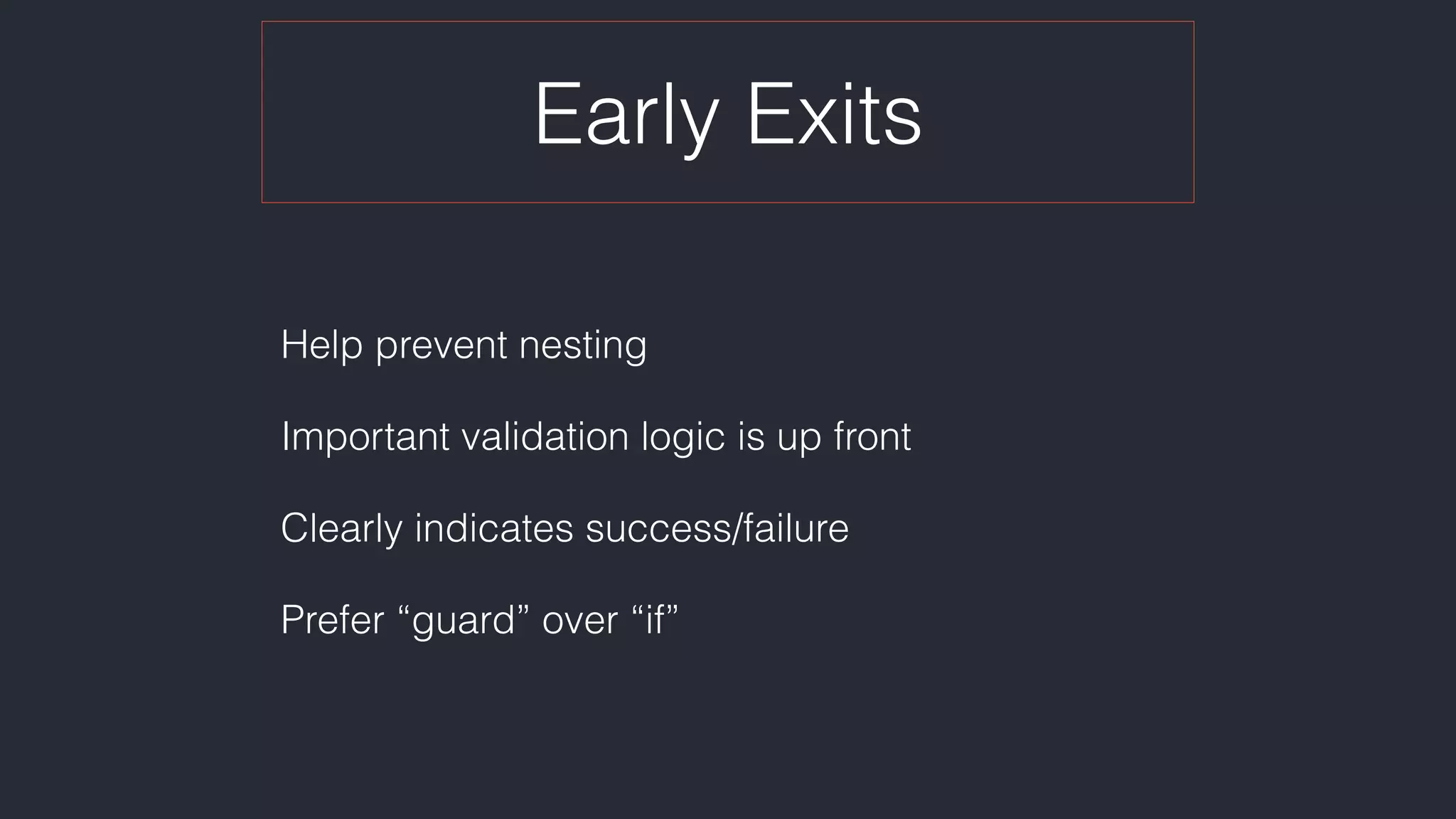
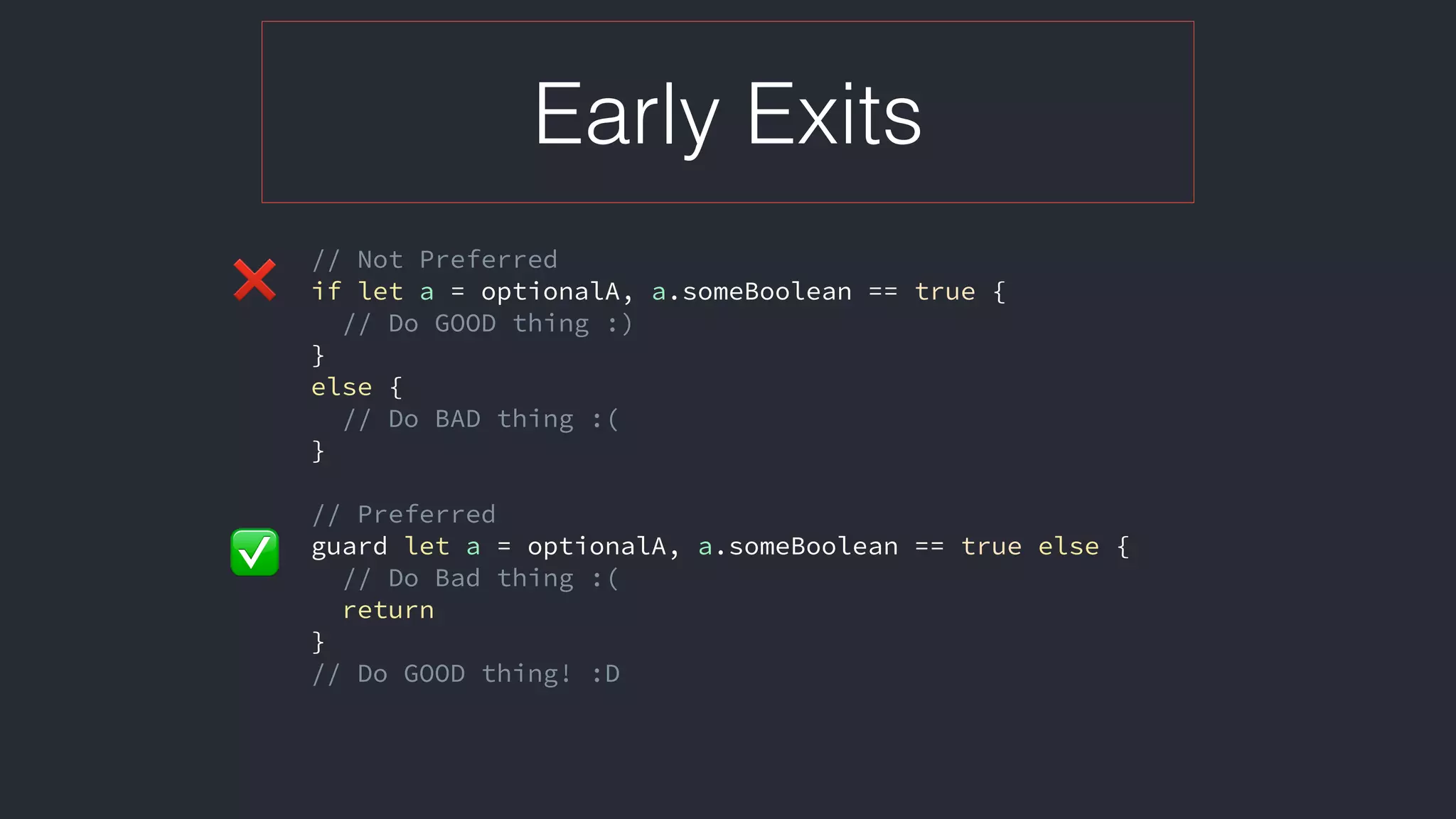
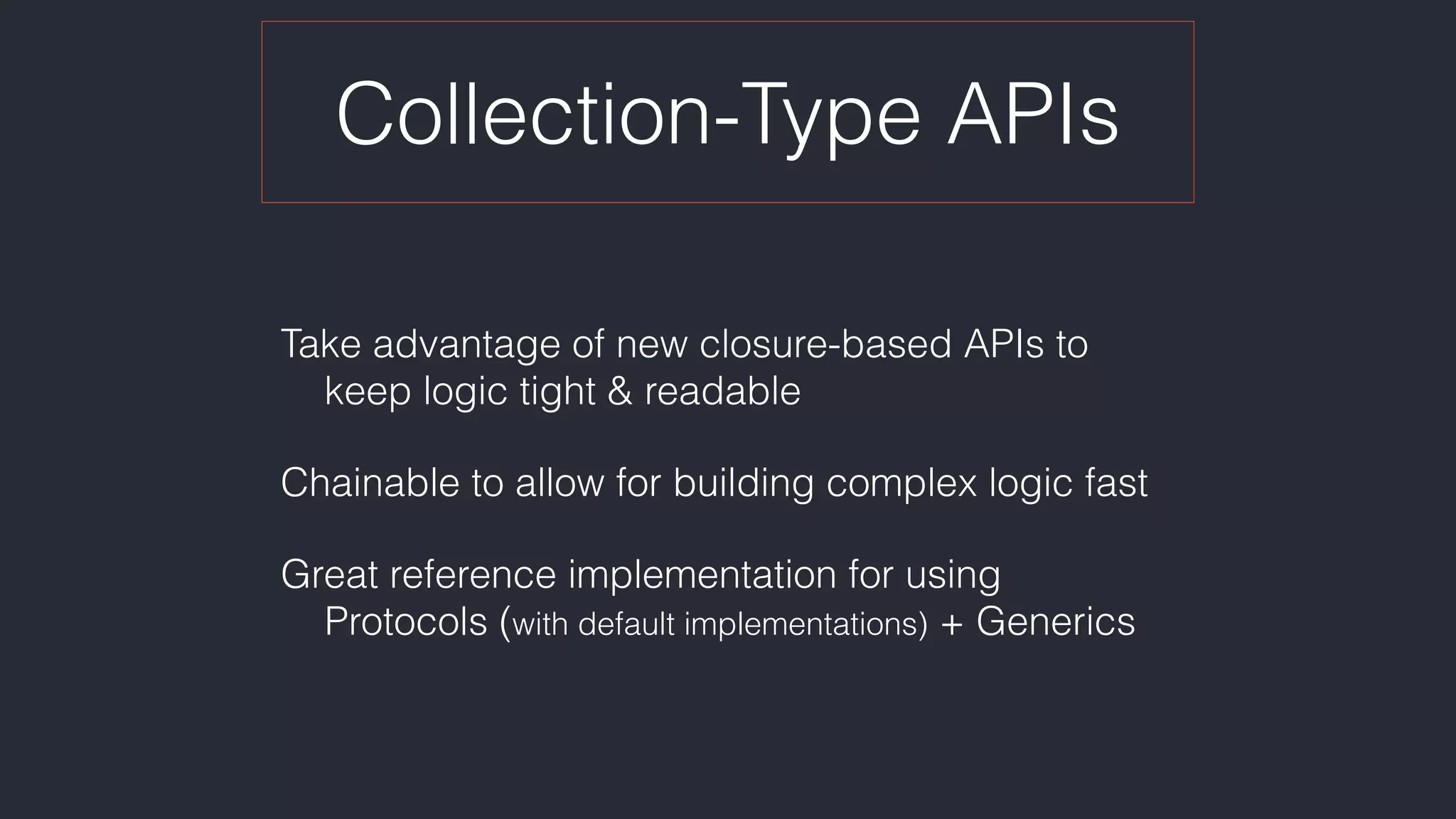
![Collection-Type APIs
var numbers = [Int]()
numbers += 1...1_000
var oddNumbers = [Int]()
for x in numbers {
if x % 2 != 0 {
oddNumbers.append(x)
}
}
var multNumbers = [Int]()
for x in oddNumbers {
let x10 = x * 10
multNumbers.append(x10)
}
for x in multNumbers {
print(x)
}
// Prints: 10, 30, 50, ..., 9950, 9970, 9990](https://image.slidesharecdn.com/pragmaticswift-170126162940/75/Pragmatic-Swift-15-2048.jpg)
![Collection-Type APIs
var numbers = [Int]()
numbers += 1...1_000
numbers.filter { $0 % 2 != 0 } // Grab all of the odd numbers
.map { $0 * 10 } // Multiply by 10
.forEach { print($0) } // Print out new values
// Prints: 10, 30, 50, ..., 9950, 9970, 9990](https://image.slidesharecdn.com/pragmaticswift-170126162940/75/Pragmatic-Swift-16-2048.jpg)
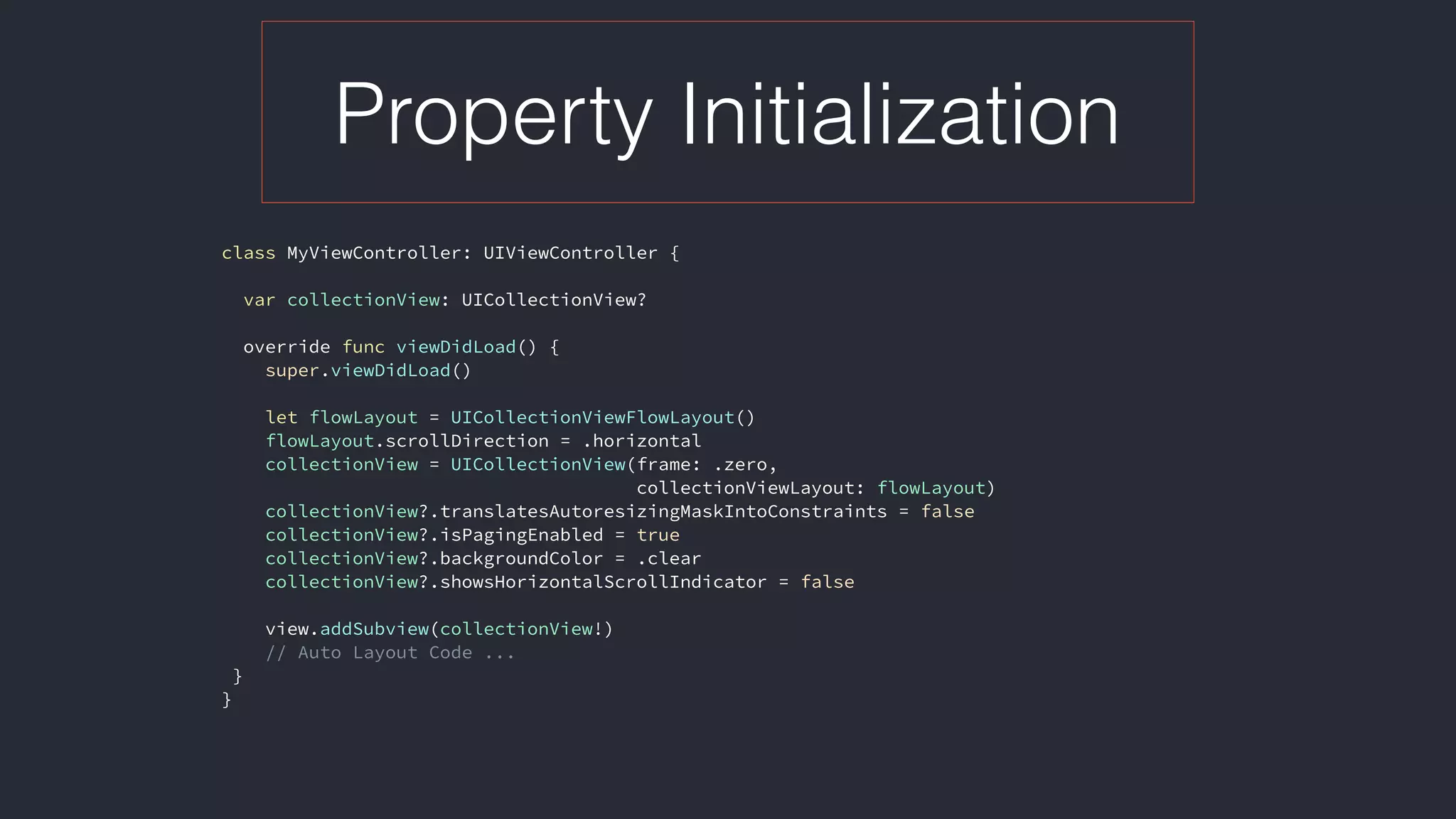
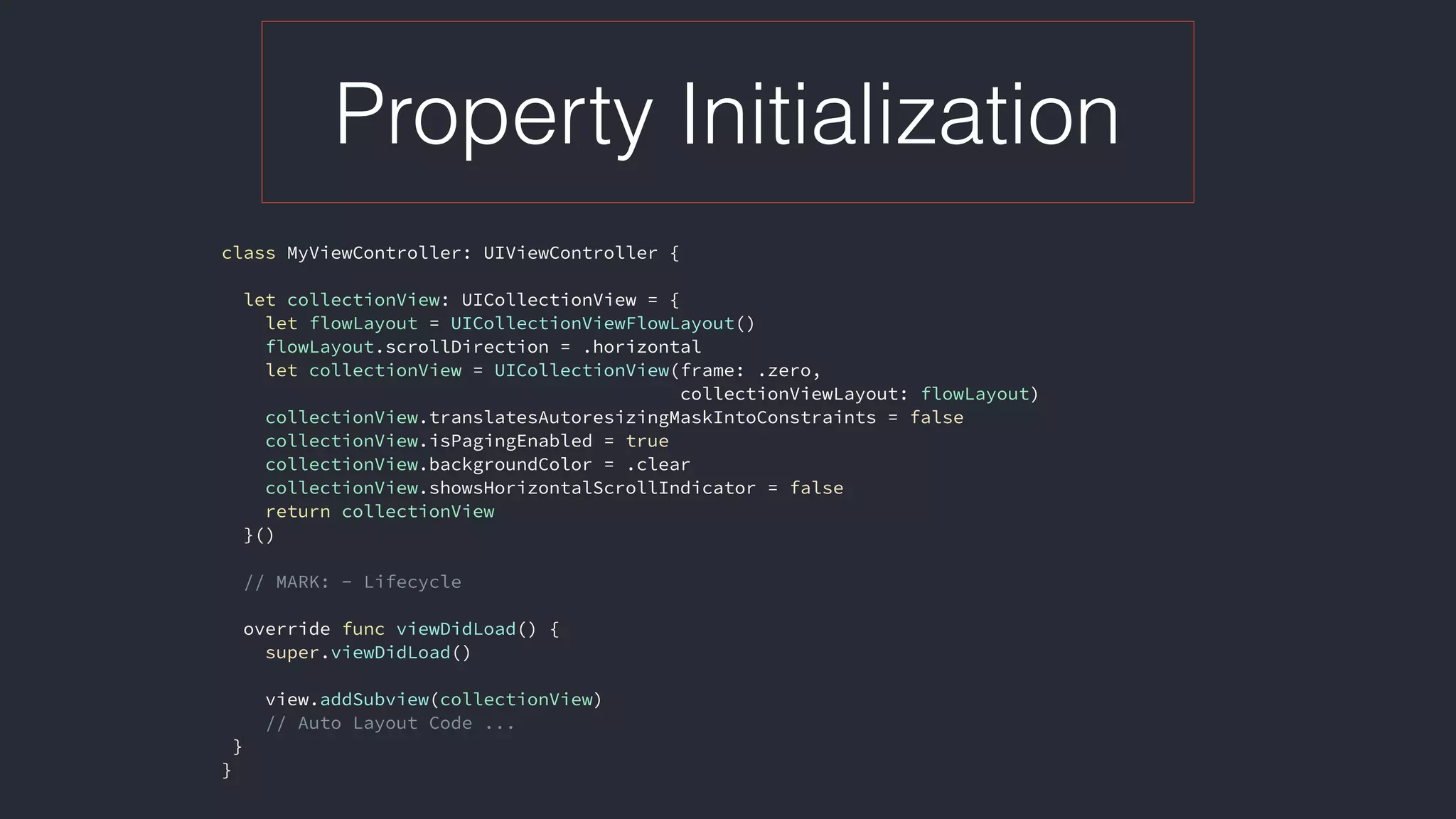
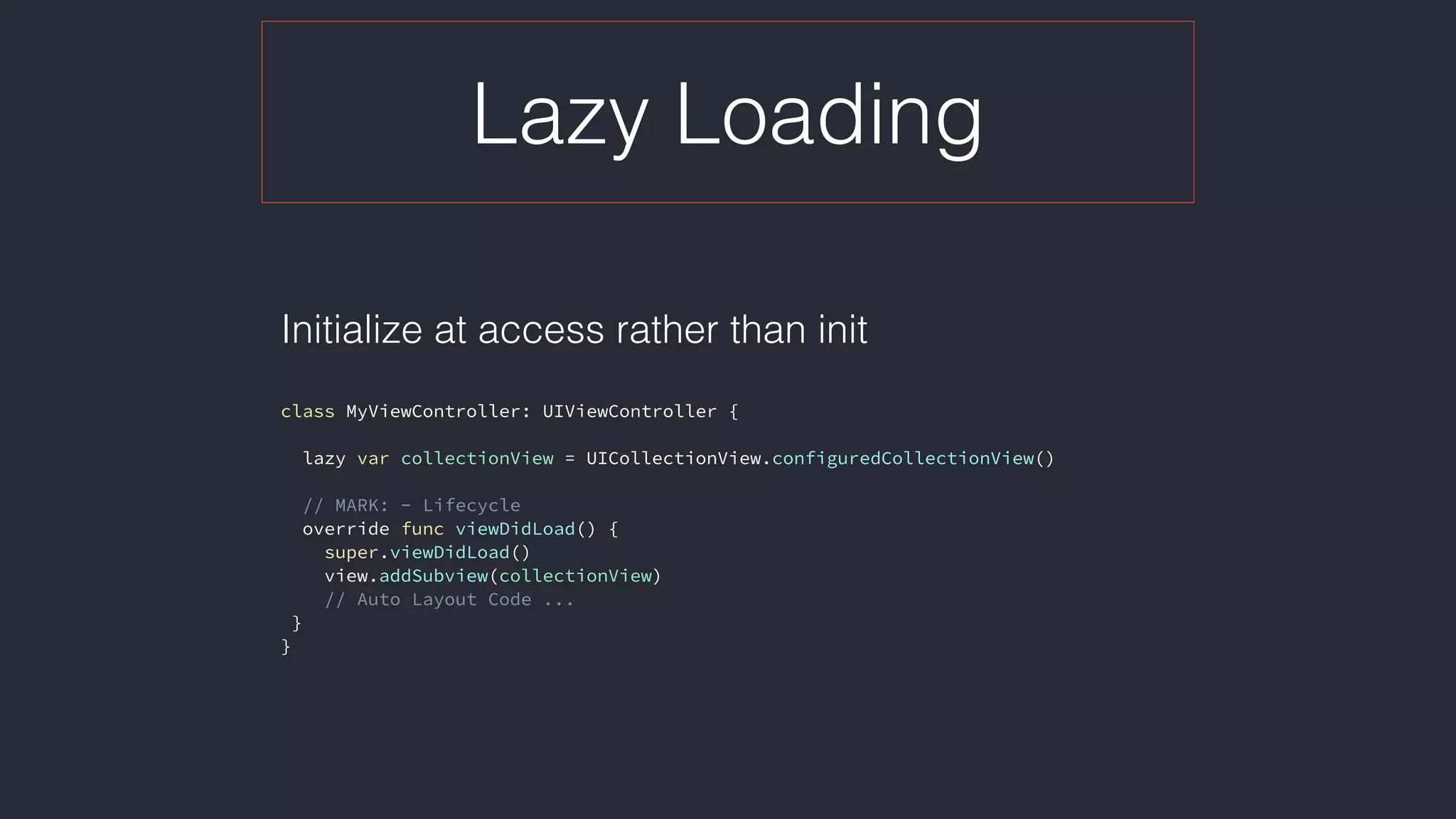
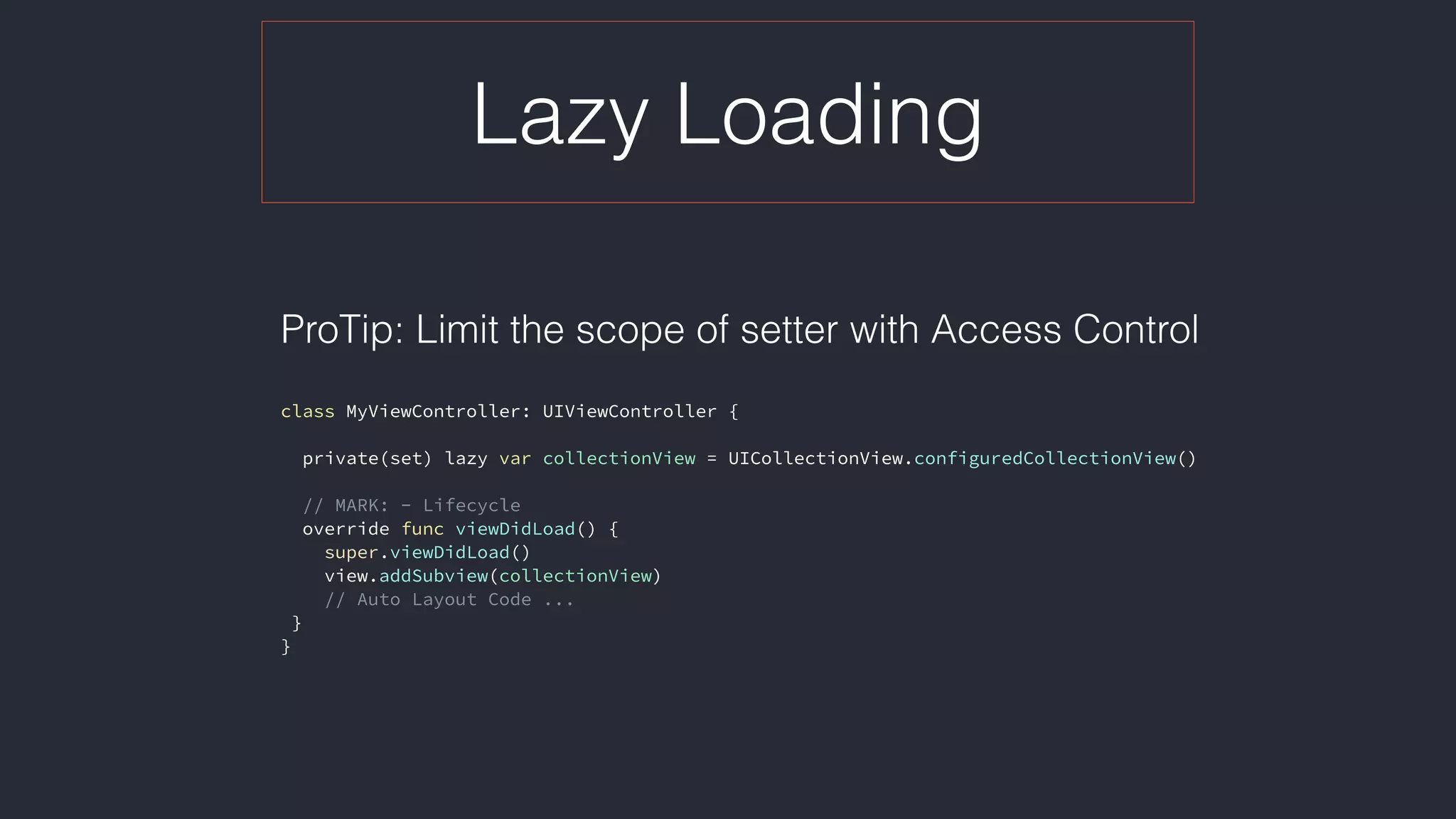
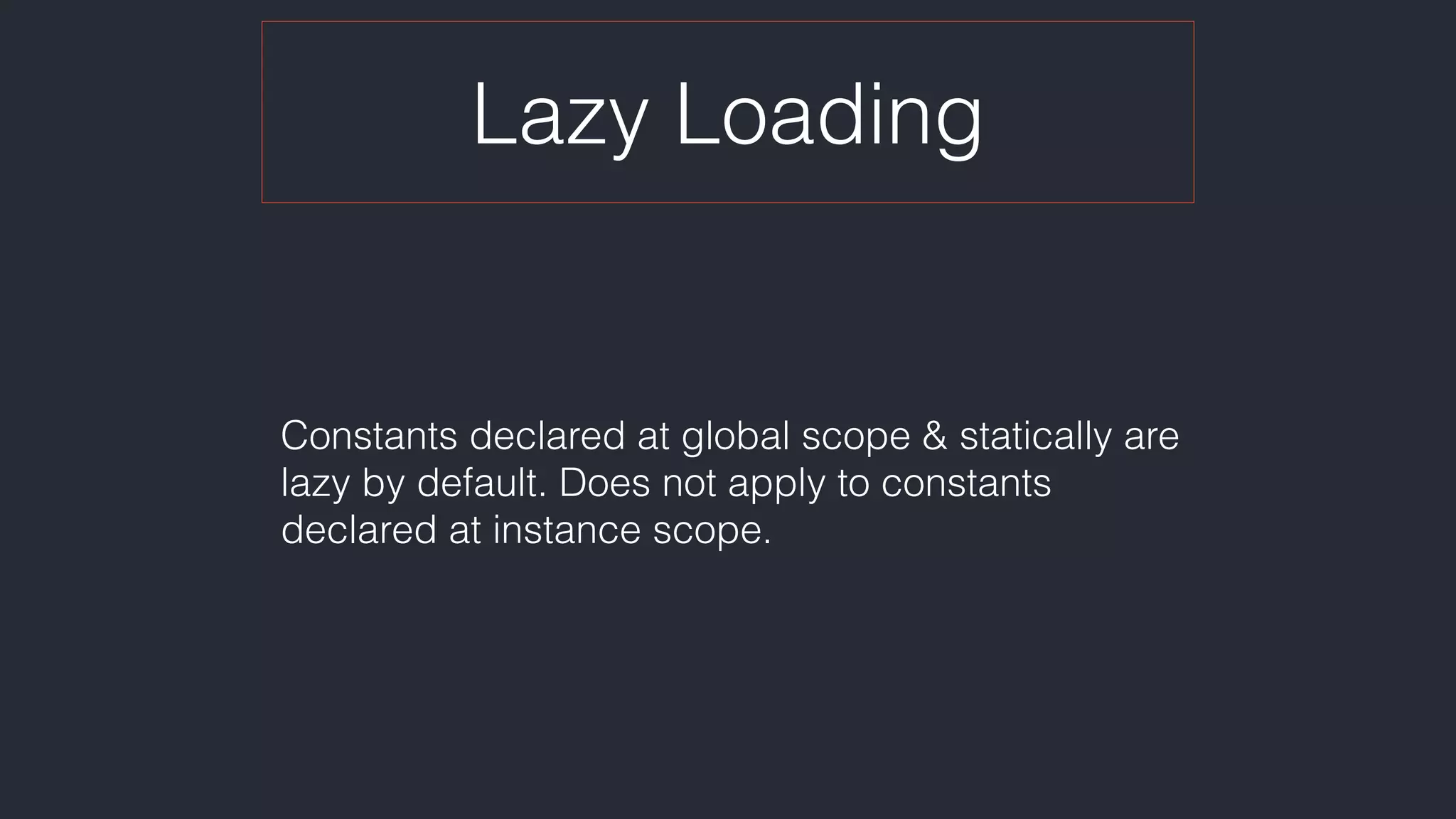
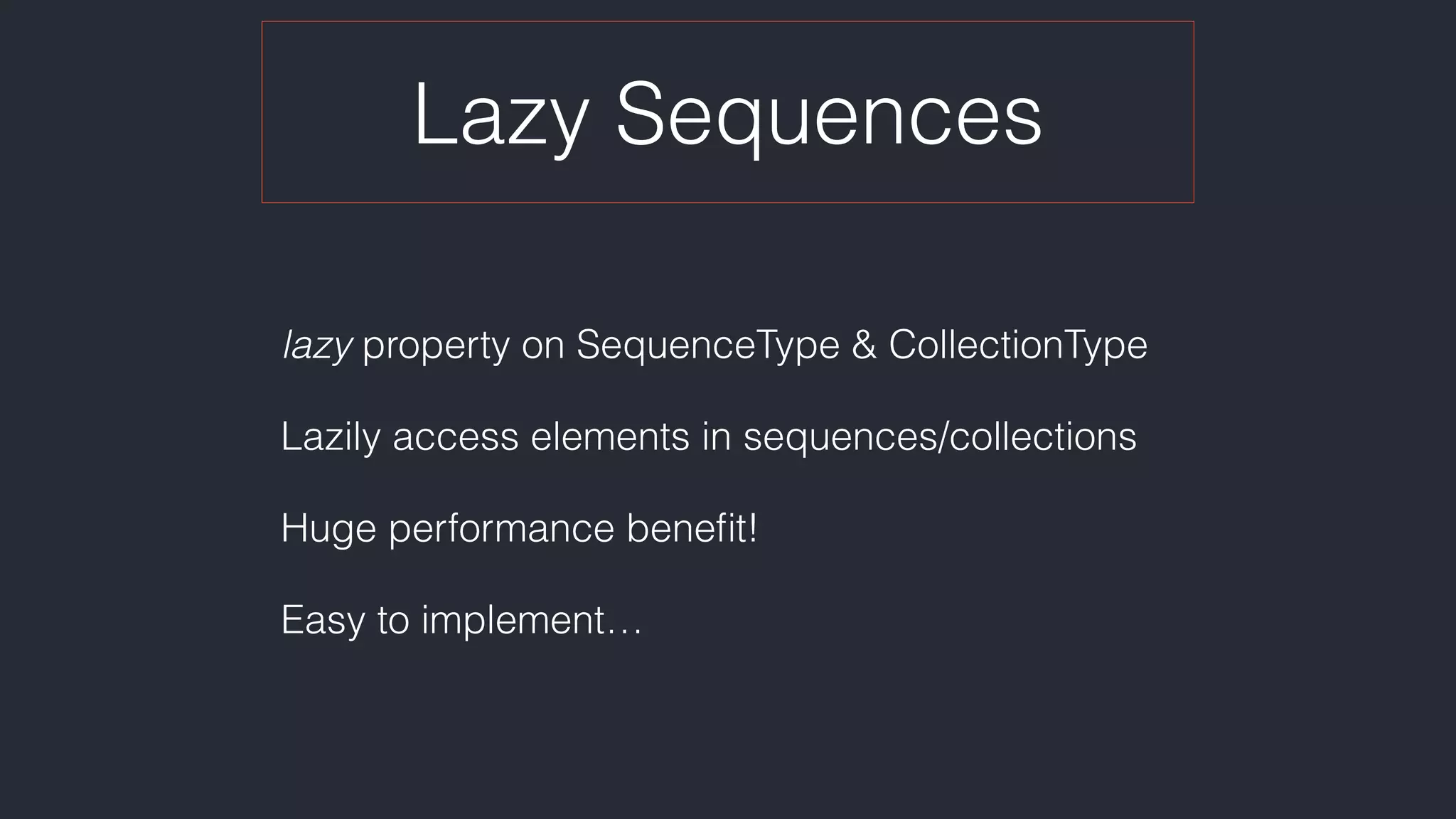
![Lazy Sequences
var numbers = [Int]()
numbers += 1...1_000
let newNumbers = numbers
.filter { $0 % 2 != 0 } // Executed 1,000 times
.map { $0 * 10 } // Executed 500 times
newNumbers.last
All calculations completed before access!](https://image.slidesharecdn.com/pragmaticswift-170126162940/75/Pragmatic-Swift-23-2048.jpg)
![Lazy Sequences
var numbers = [Int]()
numbers += 1...1_000
let newNumbers = numbers.lazy
.filter { $0 % 2 != 0 } // Executed 1 time
.map { $0 * 10 } // Executed 1 time
newNumbers.last
Calculations performed as needed on access!](https://image.slidesharecdn.com/pragmaticswift-170126162940/75/Pragmatic-Swift-24-2048.jpg)
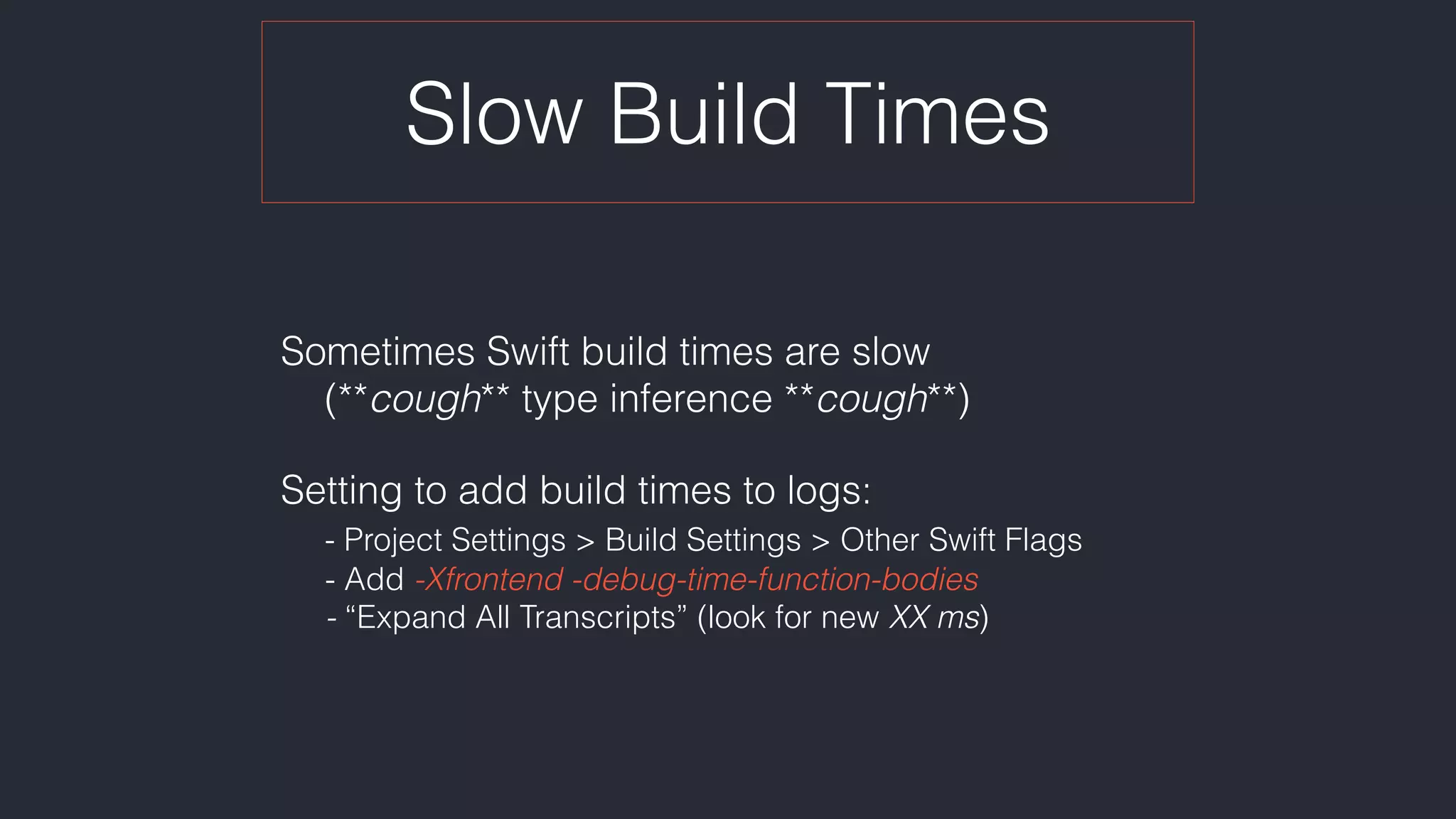
![Slow Build Times
Pro Tip: Prioritize build time optimizations:
“Copy transcripts for shown results” for logs then in
Terminal, run:
pbpaste | egrep '.[0-9]ms' | sort -t "." -k 1 -n | tail -10
Highlights the top 10 build time hogs in project](https://image.slidesharecdn.com/pragmaticswift-170126162940/75/Pragmatic-Swift-26-2048.jpg)

